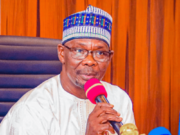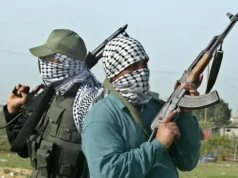The United Nations is preparing to allocate $860 million in aid for the states of Borno, Yobe, and Adamawa.
The United Nations Office for the Coordination of Humanitarian Affairs has stated that it needs a minimum of $860 million to assist 4.4 million of the most vulnerable individuals in Nigeria’s northeastern states of Borno, Adamawa, and Yobe in 2024.
This information was disclosed in an overview of its upcoming Humanitarian Response Plan for the year.
The $860 million target, the lowest in four years, is intended to provide assistance to millions of locals requiring food, healthcare, shelter, and other forms of intervention in the three states. This population includes Internally Displaced Persons, returnees, and residents of host communities.
WHATSAPP: Click HERE to join the Naijaeyes channel News Room Telegram channel for jaw dropping news group to receive latest updates on your phone!
However, it cautioned that “Humanitarian funding for Nigeria is expected to decrease significantly in 2024,” with 63 per cent of its funding target for 2023 remaining unmet.
“In 2023, the humanitarian response in the BAY (Borno, Adamawa, and Yobe) states faced severe funding and access constraints. Of the $1.3 billion requested to aid six million people, only 37 per cent, or $479.8 million, was received by the end of October.
The OCHA’s Humanitarian Country Team anticipates a tighter funding environment for Nigeria in 2024
The OCHA’s Humanitarian Country Team anticipates a tighter funding environment for Nigeria in 2024, with a sharp decline in humanitarian allocations predicted. Despite this, humanitarian partners aim to support 4.4 million people, setting a funding target of approximately $860 million. This target includes estimated funding requirements of $45 million for anticipatory interventions to address climate-related shocks such as flooding and cholera outbreaks.
The humanitarian crisis resulting from the campaigns of Boko Haram and other terrorist groups in Nigeria’s northeast remains one of the most complex globally, even fourteen years after it began. According to the United Nations Development Programme, at least 350,000 deaths have been estimated from conflicts with Boko Haram since 2009. The conflict has caused damage to agriculture, water, trade, food, and healthcare, leading to further indirect casualties. Additionally, a survey by the Council on Foreign Relations in September 2023 revealed at least 66,768 lives lost in states most affected by the conflict, including Borno, Adamawa, Yobe, Zamfara, Kaduna, Benue, and Plateau.








































